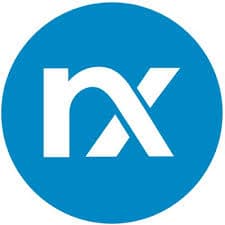NXLog Community Edition is a multi-platform log management tool that helps to easily identify security risks, policy breaches or analyze operational problems in server logs, operation system logs and application logs. This article will serve as an informative guide and give you a clear understanding of how to perform a silent installation of NXLog Community Edition from the command line using the MSI installer.
How to Install NXLog Community Edition Silently
NXLog Community Edition Silent Install (MSI)
- Navigate to: https://nxlog.co/products/nxlog-community-edition/download
- Select the Windows Installer
- Download the MSI to a folder created at (C:\Downloads)
- Open an Elevated Command Prompt by Right-Clicking on Command Prompt and select Run as Administrator
- Navigate to the C:\Downloads folder
- Enter the following command: MsiExec.exe /i nxlog-ce-x.y.z.msi /qn
- Press Enter
After a few moments you will find NXLog entries in the Installation Directory and Programs and Features in the Control Panel.
| Software Title: | NXLog Community Edition |
| Vendor: | NXLog Ltd |
| Architecture: | x86 |
| Installer Type: | MSI |
| Silent Install Switch: | MsiExec.exe /i nxlog-ce-x.y.z.msi /qn |
| Silent Uninstall Switch: | MsiExec.exe /x nxlog-ce-x.y.z.msi /qn |
| Repair Command: | MsiExec.exe /fa nxlog-ce-x.y.z.msi /qn |
| Download Link: | https://nxlog.co/products/nxlog-community-edition/download |
The information above provides a quick overview of the software title, vendor, silent install, and silent uninstall switches. The download links provided take you directly to the vendors website. Continue reading if you are interested in additional details and configurations.
Additional Configurations
Create an Installation Log File
The NXLog Community Edition installer offers the option to generate a log file during installation to assist with troubleshooting should any problems arise. You can use the following command to create a verbose log file with details about the installation.
NXLog Community Edition Silent Install (MSI) with Logging
MsiExec.exe /i nxlog-ce-x.y.z.msi /qn /L*v "%WINDIR%\Temp\NXLogCE-Install.log" |
Change Default Installation Directory
You can also change the default installation directory by using the following command line parameters. In this example, I’m installing NXLog Community Edition to “C:\NXLog”
MsiExec.exe /i nxlog-ce-2.10.2150.msi INSTALLDIR=C:\NXLog /qn |
Edit the NXLog Configuration File
You can edit the configuration file after installation. This file is located in one of the following directories depending on the operating system architecture.
- 32-bit System – “%Program Files%\nxlog\conf\nxlog.conf”
- 64-bit System – “%Program Files(x86)%\nxlog\conf\nxlog.conf”
Note: If you chose a custom installation directory, you will need to update the ROOT directory specified in the configuration file before the NXLog
service will start.
Starting the NXLog Service
The NXLog service can be started from the Services console (Run services.msc) or will be started automatically at the next boot. Alternatively, the service can be started by executing nxlog.exe, located in the installation directory. The -f command line argument can be used to run NXLog in the foreground.
NXLog Log File Messages
By default, NXLog will write its own messages to the log file named nxlog.log in the data directory. If you have trouble starting or running NXLog, then you should check this file for errors.
- 32-bit System – “%Program Files%\nxlog\data\nxlog.log”
- 64-bit System – “%Program Files(x86)%\nxlog\data\nxlog.log”
NXLog Reference Manual
See the NXLog Reference Manual for details about configuration and usage. The Reference Manual is installed in the doc directory.
- 32-bit System – “%Program Files%\nxlog\doc”
- 64-bit System – “%Program Files(x86)%\nxlog\doc”
It is also available online at https://nxlog.co/docs/nxlog-ce/nxlog-reference-manual.html
How to Uninstall NXLog Community Edition Silently
- Open an Elevated Command Prompt by Right-Clicking on Command Prompt and select Run as Administrator
- Enter one of the following commands:
NXLog Community Edition Silent Uninstall (MSI)
MsiExec.exe /x nxlog-ce-x.y.z.msi /qn |
NXLog Community Edition Silent Uninstall (MSI) with Logging
MsiExec.exe /x nxlog-ce-x.y.z.msi /qn /L*v "%WINDIR%\Temp\NXLogCE-Uninstall.log" |
Always make sure to test everything in a development environment prior to implementing anything into production. The information in this article is provided “As Is” without warranty of any kind.

